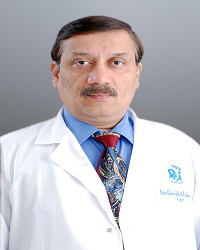Conditions for Which Laryngoscopy is Performed:
Here are some common ones in which laryngoscopy surgery is performed:
1. Vocal Cord Polyps: Polyps are characterised by small, soft growths on the vocal cords, which can cause raspiness or breathiness.
2. Laryngeal Cancer: An uncommon but serious condition where malignant cells form in the tissues of the larynx.
3. Vocal Cord Paralysis: This results from impaired nerve function leading to voice changes and swallowing difficulties.
4. Laryngitis: An inflammation of the larynx often resulting from infection or overusing the voice.
5. Laryngoceles: Air-filled sacs that can cause difficulty in breathing and changes in voice.
How is Laryngoscopy Conducted at Apollo Hospitals in Mysore?
Endolaryngeal doctors carry out this minimally invasive procedure in a structured manner:
1. Anaesthesia: An anaesthetic spray is applied to numb the throat region. In the case of direct laryngoscopy general anaesthesia is given.
2. Laryngoscope insertion: A small, flexible tube called a laryngoscope is carefully inserted through the mouth or nose.
3. Examination: The laryngoscope is guided down the throat to visualise the larynx and vocal cords. This helps in determining any abnormality or irregularity.
4. Collection: If necessary, tissue samples are collected for further investigation or abnormal tissues are removed.
5. Removal: The laryngoscope is gently removed, concluding the procedure. Post-procedural care is given to the patient under medical supervision.
How to Choose the Best Specialist for Laryngoscopy in Mysore?
When considering laryngoscopy, it is crucial to consult proficient and highly experienced otolaryngologists. Look for throat doctors who prioritise patient-centred care, ensuring thorough evaluation and effective treatment plans tailored to individual needs.
Their expertise and experience must ensure that the patients are always treated by skilled endolaryngeal doctors.
Why Plan Your Laryngoscopy with Apollo Hospitals?
Mysore’s Apollo Hospitals offer a blend of advanced medical technology and skilled professionals that ensure the best possible healthcare experience. From bronchoscopy doctors to specialised nursing staff, every member of the team contributes towards achieving optimal patient outcomes.
With its well-equipped operation theatres and post-operative care facilities, Apollo Hospitals Mysore is committed to providing comprehensive care that prioritises patient comfort and satisfaction.









 Call Now
Call Now





